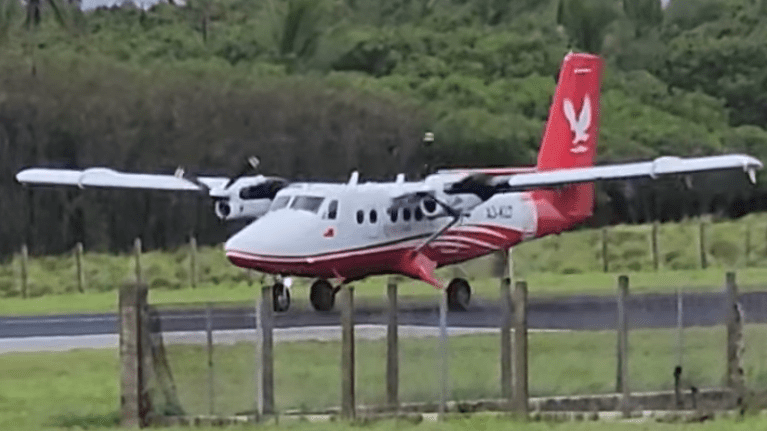NUKU’ALOFA, TONGA –The Tongan government has affirmed the operational viability of state-owned Lulutai Airlines, describing the carrier as fully functional.

The Deputy Prime Minister stated that Lulutai is “operative”, “flying” and “break even,” describing the successful review in Tongan as: “ko ē e ngāue ko ē na’a mau fai ki he Lulutaí ko eni kuo si’i mo’ui kuo puna holo.”
Break even, he meant the airline is generating just enough revenue to cover costs without turning a significant profit.
The remarks came amid mounting scrutiny of the former Hu’akavameiliku government’s airline management, accused of making multimillion-dollar decisions without parliamentary transparency.
Critics highlighted controversial purchases like last year’s Twin Otter aircraft, which shocked the public and raised questions about fiscal oversight.
Potential Foreign Buyers
Prime Minister Aisake Eke , also serving as the Finance Minister, confirmed the new budget allocates no funding to Lulutai and ruled out government loans, citing “interest from foreign potential stakeholders” in acquiring shares.
“This is exciting, and we’re exploring partnerships,” he said, without naming interested parties.
He expressed in Tongan that this was an exciting (“fakafiefia”) new phase, as there had never been an airline like this before, referring to the previously government-sponsored airlines.
Controversial Investments Collapse
Lulutai Airlines has plunged into deep debt following controversial investments totaling approximately $50 million, according to the Minister of Public Enterprises.
This includes government funding and the use of Australian budget support. The airline also secured a $4.5 million loan from the National Retirement Fund Board to purchase a new $14 million Twin Otter. Reports indicated that the Board acquired equity in Lulutai Airlines under the terms of the agreement.
Despite these substantial investments, the carrier continued to face significant challenges, including an insurance company’s refusal to replace its SAAB 340 aircraft that crashed in December 2024.
Government Review
When Prime Minister Eke’s government took office earlier this year, it vowed to conduct comprehensive reviews of all government ministries and state-owned entities. At the time, only one of Lulutai Airlines’ three aircraft – the Twin Otter – remained operational.
The new administration terminated then-CEO Poasi Tei, who had been appointed by the former Hu’akavameiliku government after Tei lost his parliamentary seat due to an electoral bribery conviction.
In an effort to revive the airline, the government hired Tevita Palu, the Real Tonga aviation engineer, as the new CEO.
The Public Enterprises Minister said at the time that privatisation was impossible because Lulutai’s poor condition deterred potential buyers, and previous investments would be wiped out.
Aviation Transparency Demands
While the airline’s performance data remains undisclosed, the government’s update offers hope—a turning point for Tonga’s troubled domestic aviation sector, which has grappled with service failures and allegations of secrecy since Chatham Airlines left in 2013.
Tourism and aviation experts – including those from the IMF and World Bank – consistently maintain that no government-operated airline could survive in Tonga.
Their cited reasons include the small domestic market, political instability, high aircraft maintenance costs, and volatile fuel prices.
Lulutai Airlines, launched in 2020 to boost domestic connectivity, has faced operational challenges. Opposition members argue its financials remain opaque, demanding audits of past expenditures.







